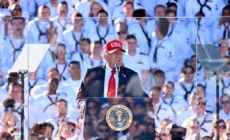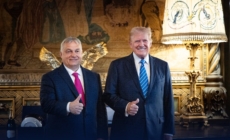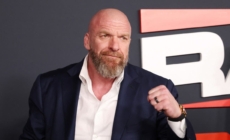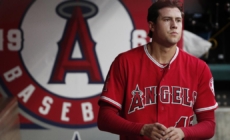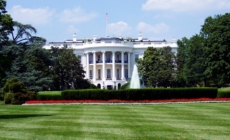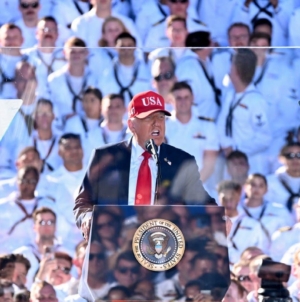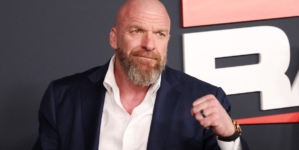-
Donald Trump’s Osama Bin Laden Comments Raise Eyebrows - 11 mins ago
-
3% Fixed-Rate Loans Announced for Businesses - 23 mins ago
-
How to detect and remove malware from your infected Mac computer safely - 34 mins ago
-
NASCAR Playoff Rankings: Is Denny Hamlin the Driver to Beat Entering Round of 8? - 43 mins ago
-
Major Match Reportedly Planned For WWE Crown Jewel - 51 mins ago
-
Denise Richards’ ex names Charlie Sheen, Brandi Glanville as divorce witnesses - 53 mins ago
-
Hamas and Israel set for Trump’s Gaza plan peace talks in Egypt - 54 mins ago
-
Power Demonstration: Foreign Politicians March at Pécs Pride - 56 mins ago
-
Tyler Skaggs’ family, Angels face off in civil trial worth millions - about 1 hour ago
-
Tigers’ Spencer Torkelson hits two-RBI double to tie score against Mariners - about 1 hour ago
Why Hollywood’s Abuse Machine Can’t Sustain Inclusion | O…
A culture built on scarcity and sabotage was never designed to protect diversity—and its reversal today shows why Black and marginalized creators must build outside the system.
Hollywood, we need to talk. Not another staged “diversity panel”—tepid Chardonnay and crudités that have more seasoning than the talking points—but the kind of talk you have when you finally admit the relationship is toxic. You promised a new era, then quietly pulled the rug and went back to the same power structures. I know—because I was one of the people you courted and then discarded.
On paper, my career looked enviable: a writer, director, and performer with credits across television, film, and digital; creative collaborations that reached millions; work recognized and awarded. I am also a Black woman, which meant I was often paraded as proof of “progress” until I tried to actually speak up.
I will never forget the day a studio executive called me a “diversity hire” as an insult—for daring to share an opinion in the writers’ room. I was co-producing a show and still being told I was ornamental. That wasn’t an isolated moment. It revealed a truth: inclusion was never meant to give us authority, only optics.
Hollywood thrives on competition that doesn’t sharpen iron—it salts the Earth. It breeds sabotage, backstabbing, and reputational arson. This is the culture the industry runs on: scarcity, insecurity, and the performance of power. And it’s the same culture that explains why the much-touted diversity wave was never built to last. Diversity was marketed as progress but sustained with the same toxic logic that governs writers’ rooms—the idea that only a few are allowed in, and they can be discarded the moment the optics shift.
The cost is real. Years of stress put me in the hospital with a lifelong condition that hits every part of my health—call it Hollywood’s Lifetime Achievement Award in Burnout. I realized I could either keep pursuing this industry as I knew it or live a long life—but not both. So I chose life: I left my agents and manager and unplugged from the machine.
With distance, the pattern became undeniable. This industry wasn’t just corrosive to me—it was regressing for everyone. Older Black writers had warned me: “Enjoy the wave, it’s a rental.” I didn’t believe them. I thought we were building something new. But they were right. The pendulum has swung back, the diversity buzzwords have evaporated, and the town is acting allergic to melanin.
The numbers prove it. The 2025 UCLA Hollywood Diversity Report (Theatrical) found that the share of top theatrical films with casts under 11 percent people of color more than doubled from 2023 to 2024—the highest in years (see the UCLA summary). Meanwhile, films with casts between 41-50 percent people of color grossed far more than the least diverse casts, a commercial reality Hollywood keeps ignoring.
The trend extends beyond race. The USC Annenberg Inclusion Initiative’s 2025 report shows that while more than half of the top 100 films in 2024 had a female lead or co-lead, the number of leads of color dropped sharply, from 37 in 2023 to 25 in 2024. LGBTQ representation also declined, according to GLAAD’s Studio Responsibility Index.
This regression mirrors American politics, where rollbacks and “anti-woke” rhetoric have made diversity itself a cultural wedge. Studios may not say it outright, but executives are scanning the headlines, wary of backlash, choosing safety over substance. Hollywood has always mirrored the culture around it, and right now that culture is hostile to difference. No diversity on screen? Welcome to the Generic Cinematic Universe.
And this is where the connection becomes clear: an abusive industry culture—one that normalizes tirades, reputational sabotage, and scarcity politics—was never capable of protecting diversity. It could perform it, profit from it, but never sustain it. So the result is predictable: Women may gain ground, but leads of color fall. LGBTQ characters disappear. “Broadening” becomes the polite note for erasure.
Yes, the business is changing—through consolidation, cost-cutting, and AI reshaping production. But if the business is changing, then artists must change too. If we keep playing by the same rules, our stories—especially those of Black and marginalized creators—will be smoothed out or quietly erased in the edit.
So here’s where I stand: I’m leaving this business. To be clear, I’m not leaving storytelling—storytelling is in my blood. I’m walking away from the industry as I know it. The future, especially for Black and marginalized creators, is independent.
Independence is the only model that protects the work and the worker. It means keeping ownership of our IP instead of trading it for a “shot.” It means bypassing executives who demand we sand down history and “broaden” the edges until nothing true remains. It means choosing speed and honesty over development purgatory and direct audience relationships over algorithmic gatekeeping.
Hollywood broke its promise. But outside its gates, we have the freedom to imagine what comes next.
Rochée Jeffrey is an award-winning writer, director, and performer whose credits include grown-ish, SMILF, Woke, and Step Up. Her work has been featured by HBO, Hulu, Showtime, and Audible, and she uses comedy and storytelling to explore race, power, and identity in a moment when inclusion is under political and cultural attack.
The views expressed in this article are the writer’s own.
Source link
